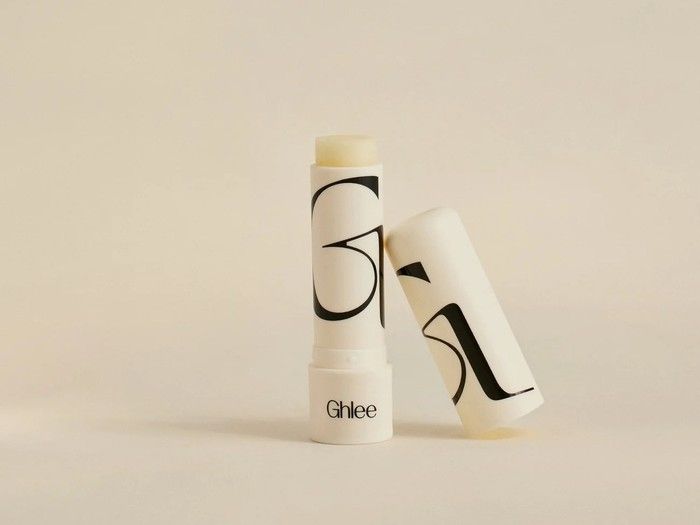Tech
The decade Big Brother came home: How tech giants persuaded us to buy products that track us at home – CNBC
George Orwell’s classic novel “Nineteen Eighty-Four” warned us of a dystopian future where mass surveillance and spying are rampant, with all information flowing to an all-seeing, omnipresent figure called “Big Brother.”
But Orwell never imagined that consumers would invite Big Brother into their homes.
The last 10 years have seen the rise of internet-connected security cameras, smart speakers, doorbells, light bulbs, thermostats, vacuums and baby monitors from tech giants including Amazon, Google, Apple, Facebook, and Microsoft.
Smart home devices have seen steady sales growth each year since 2016, according to market research firm IDC, which began tracking the category that year. The firm projects the devices to continue selling at a rapid clip in 2019 and over the next four years. Smart speakers and security cameras are among the most popular category.
This means consumers in this decade have filled their homes with sensors, cameras and microphones. But they have few tools to control how and when these devices collect images, conversations or any other data about them, and few laws effectively restrict how this data can be used.
Welcome, Alexa
Smart home devices weren’t invented in the last decade. Tech companies have been trying to push home automation since the 1990s or earlier.
But the smartphone revolution led to rapid miniaturization of technology and a rapid decrease in pricing. That paved the way for the so-called “internet of things”: the idea of embedding chips, sensors, cameras and network connectors in everyday objects, enabling them to send and receive data. IoT applications took off among businesses first but failed to resonate with consumers for many years.
At the same time, advances in artificial intelligence made it easier and cheaper for computers to understand and respond to voice commands.
These trends came together in 2014, when Amazon launched its Echo device with its digital assistant, Alexa. It became a cultural phenomenon as sales took off, and Amazon soon expanded its lineup of voice-activated devices beyond the smart speaker to things like wireless earbuds and microwaves. Amazon said in January it has sold more than 100 million Alexa-enabled devices, while a separate report from Consumer Intelligence Research Partners found Amazon’s Echo controls 70% of the smart speaker market.
An Amazon Echo Dot device
Patrick T. Fallon | Bloomberg | Getty Images
Voice-activated devices created a much more compelling reason for users to allow tech giants into their homes. A 2018 study from NPR and Edison Research found 64% of participants purchased a smart speaker specifically to control other smart home devices.
For many, the convenience of asking their smart speaker to turn on the lights, lock the door or open the blinds became too appealing to pass up, kicking off an arms race among companies to integrate their AI assistants in as many smart home products as possible.
Suddenly, smart home devices weren’t just experiments in research labs or prototypes that “early adopters tinkered with,” said Florian Schaub, a University of Michigan professor who has conducted research on consumer attitudes around digital assistants. Today, smart speakers, locks and thermostats have become as easy to use as the smartphone.
“You can go into a big box store and buy lots of and lots of smart home connected devices that just function and don’t require much technical expertise,” Schaub said. “It has become a big business and market for many companies.”
Surveillance capitalism
As sales grew, tales of privacy nightmares grew with them.
A 2017 murder case in Arkansas ignited a debate around whether data from smart home devices should be allowed as evidence in court after police asked Amazon to turn over information from the suspect’s Echo. IRobot‘s Roomba vacuums raised concerns of data sharing after CEO Colin Angle discussed the possibility of asking users for permission to share maps of their homes with tech companies.
In 2018, users were unnerved when Amazon’s Alexa started laughing at them unexpectedly and when a stranger hacked into a Google Nest camera and started talking through it to a Houston woman’s infant son.
In 2019, users learned that people working for Google, Amazon, Facebook, Microsoft and Apple were listening to their conversations. Representatives from Amazon and Microsoft said the companies review a small percentage of deidentified users’ voice recordings and that they’ve introduced new tools to give users greater control over their interactions with digital assistants. A spokesperson for Google pointed to the company’s privacy page, in which it said it has made efforts to reduce how much Google Assistant data it collects. Facebook and Apple didn’t respond to requests for comment.
In another case this year, a poorly protected Nest camera allowed a hacker to spout fake nuclear bomb threats at a California woman. Nest also attracted criticism after it failed to disclose a built-in microphone in the Nest Secure home security system. Then there was the revelation that Amazon’s Ring division supplies police departments with footage from its security cameras, often without consent from its users.
In a statement, a Google spokeswoman said attacks like the nuclear bomb threats were a result of credential stuffing, which occurs when a bad actor uses stolen information to access poorly secured accounts. The spokeswoman added that the company is introducing new Nest security features in the coming weeks.
A Ring spokesperson said the company has taken steps to limit how much information is shared with police departments from the Neighbors app, which lets users post photos and videos of crime activity in their neighborhood.
From the start, privacy advocates have warned of the dangers associated with these devices, not just because they’re embedded with cameras and microphones but because of the vast troves of data they routinely gather.
Devices like an Amazon Echo, Google Home or Amazon Ring security camera can track where you go, how many people live in your household, what your interests are and what you’re buying. The companies say that detailed information is often used to improve the user experience by reducing pain points like a wrong answer from the Google Assistant, or adding helpful suggestions, such as local traffic alerts based on your schedule.
Analysts say one of the many places Apple can still succeed is in smart home technology, like the Nest, a brand of Google that consists of smart home products, such as thermostats, smoke detectors and security systems including smart doorbells and smart locks. Ironically, the Nest brand name was originally owned by Nest Labs, co-founded in 2010 by former Apple engineers.
David Paul Morris | Bloomberg | Getty Images
But some privacy activists and experts are concerned about the rise of so-called surveillance capitalism, in which tech companies treat private interactions as raw data to predict behaviors. The laws governing how tech companies use the information are weak, particularly in the U.S., and enforcement often amounts to a slap on the wrist, with fines that are tiny compared with the tech giants’ overall revenues. If the data is poorly secured and gets into the hands of a bad actor, suddenly strangers and criminals could have access to a wealth of personal information — far beyond email addresses and internet passwords.
In the past, users might have thought they were just a “cog in the machine” whose individual activity went unnoticed, but recent privacy failures have proven otherwise, said Jen King, director of consumer privacy at Stanford Law School’s Center for Internet and Society.
“Users have learned that they are of particular interest to these companies,” King said.
The privacy failures have not inspired people to dump their Echos and Google Homes en masse.
Instead, some consumers have adjusted how they use the devices. Some have also adopted what King calls “strategies of resistance,” like using camera covers for extra privacy or changing their device settings to limit data collection.
Additionally, many consumers don’t understand how much data these devices collect. Others are unhappy with how smart devices monitor and track them, but they’re resigned to the fact that they have little control over the process.
“As a consumer, you can either use these technologies and benefit from the convenience, or you can opt out entirely due to privacy concerns,” Michigan’s Schaub said. “There’s very little opportunity to engage somewhere in the middle.”
Calls for more control
In response to the privacy blunders in recent years, many consumers have tried to educate themselves on exactly what these devices are collecting.
Often, they’re discovering this is impossible.
Terms of service agreements are lengthy and time-consuming to parse through, while much of the language used is too dense to understand. It’s unrealistic to expect that users are capable of managing every interaction they have with their devices, especially since much of that data is transferred off their device and to the cloud, where users have little say on what happens next.
“Even those of us who are fully technically capable and have the time, understanding and willpower to make it a priority, those agreements are one-sided agreements,” said Daniel Kahn Gillmor, internet security technologist at the American Civil Liberties Union. “If the agreement says we will share your usage information with third-party partners, I know what that means, but that doesn’t mean I consent to it.”
Tech companies have taken some proactive steps in light of the consumer outrage around privacy. Many have become more explicit about how they use and retain sensitive information, including Nest, which issued a plain-language document detailing its “commitment to privacy in the home.” Others created new tools for users to manage and delete their data, such as the command “Alexa, delete what I just said.”
Ultimately, experts say users and government officials should not be satisfied with tech companies’ attempts to regulate themselves.
Within the last year, regulators have stepped up their scrutiny of tech companies’ data collection. The Senate has gotten closer to establishing a federal privacy law, which could require companies to clearly disclose their privacy policies. Lawmakers have hauled tech executives to the Hill to face questioning about data collection and privacy, while the Federal Trade Commission has handed down privacy-related fines to Facebook and Google’s YouTube this year.
Even if regulators do enact sweeping privacy legislation, consumers will still need to be careful about what kinds of smart devices they introduce in their home.
“This is going to be a very frustrating, nearly daily continuous problem for the public, both in the U.S. and around the world,” said Jeff Chester, executive director for the Center of Digital Democracy. “Tech companies will continue to push the envelope in terms of data collection.”
Tech
Meta Expands VR Operating System to Third-Party Hardware Makers – MacRumors


Facebook parent company Meta today announced the upcoming expansion of Meta Horizon OS, a virtual and augmented reality operating system that will be available to third-party hardware manufacturers that want to design their own headsets.
Right now, Meta sells the Quest line of headsets, but the company wants to provide the software for third-party VR and AR products in the future, much like Microsoft offers Windows for all manner of third-party PCs.
Meta Horizon OS is the mixed reality operating system that Meta created for its own Quest headsets, and it has support for eye, face, hand, and body tracking along with passthrough, spatial anchors, scene understanding, and other features. There is a “social layer” that will allow the identities, avatars, and friends of users to move between virtual spaces on different devices.
According to Meta, multiple companies are working on devices that will use Meta Horizon OS. ASUS ROG is developing a performance gaming headset and Lenovo is working on mixed reality devices for productivity, learning, and entertainment. Meta says that it is also creating a limited edition version of Meta Quest in partnership with Xbox.
With the expansion of Meta Horizon OS to third-party hardware manufacturers, Meta is making it easier for any developer to ship VR software on the platform by removing barriers between the Horizon Store and App Lab.
By creating an operating system that can be used by other hardware manufacturers, Meta is inserting itself into the growing AR/VR ecosystem and creating opportunities for it to outpace Apple in mixed reality development. Apple launched the Vision Pro headset earlier this year, but software is lacking given the high price and limited distribution of the device.
According to a report from earlier today, interest in the Vision Pro is already waning at Apple’s retail locations with fewer people requesting demos.
Tech
Brian's Randoms from Sea Otter 2024 – Pinkbike.com


There have been more launches in the past two weeks than any other two-week period I can remember since I started sweeping floors at Freedom Bike Shop back in 2001. Yes, that means I’m very old. It also means that after several years of delayed product releases, some brands have finally cleared out enough inventory to share what they’ve been working on.
The Pinkbike team came down to Sea Otter this year with mixed expectations, and there were definitely some weird vibes. Everyone is concerned for the remaining Kona employees, and more than one brand expressed that their plan is to #surviveto2025. But overall we loved catching up with everyone, the weather was great, and somehow there was even more gear to cover. The industry might be going through a tough time, but ultimately riding bikes is still ridiculously fun and bike tech is as interesting as ever.
And on that note, here are a few of the random things that caught my eye during the show.
OutsideBrendan works smarter not harder, and dog Bubbie(?) is awesome.
I mistakenly thought it was a garage project kind of thing, but it’s a real brand with a promo video and everything.
And with that, it’s time to face my expense report. Until next year, Sea Otter!
Tech
We tried these three beauty products this week. Here are our thoughts – Vancouver Sun


Reviews and recommendations are unbiased and products are independently selected. Postmedia may earn an affiliate commission from purchases made through links on this page.
Article content
Skin Caviar Eye Lift Serum
They say: A luxury serum that firms, smooths and lifts the eye area. The dual-chamber product features the Swiss skin-care brand’s Cellular Complex to ‘restore youthfulness to the eye contour,’ along with a blend of caviar components.
We say: Our tester applied one pump of this serum to the eye area daily. Gently dabbed onto skin, the serum gave an instant boost of hydration. The liquid-serum formula was lightweight and non-sticky, providing an easy base for any additional skin-care or makeup products. With use, our tester reported fine lines and firmness were noticeably improved.
Article content
$760 | Holt Renfrew, holtrenfrew.com
Marc Anthony
Strictly Curls Curl Envy Leave-In Conditioner
They say: A leave-in hair conditioner formulated for curly hair. Boasting strand-smoothing ingredients such as avocado oil, Vitamin E and shea butter, the spray can be used on course, fine, thick or thin curls to promote softness, fight frizz and lock in hydration.
We say: Our tester spritzed this conditioner on her ultra-curly, frizz prone coif. The spray format makes application easy and mess-free. Used both as a de-tangler on freshly washed hair and as a curl pick-me-up in between washes, she found it left curls looking formed, smooth and not stiff.
$12.97 | Mass retailers, walmart.ca


Ghlee
Lip Balm
They say: A nourishing lip balm that features antioxidant-rich ghee, along with mango seed butter and Vitamin E to hydrate lips. Available in Original, Rose, Chai, Mango-Papaya and Mint.
We say: This lip balm gives a dose of smoothing hydration with one swipe. Our tester loved the rose iteration, which boasted the scent of a fresh bloom. It’s the kind of balm you keep reaching for in your bag, she reports.
Share this article in your social network
-
Business13 hours ago
Honda to build electric vehicles and battery plant in Ontario, sources say – Global News
-



 Science14 hours ago
Science14 hours agoWill We Know if TRAPPIST-1e has Life? – Universe Today
-
Investment17 hours ago
Down 80%, Is Carnival Stock a Once-in-a-Generation Investment Opportunity?
-



 Health13 hours ago
Health13 hours agoSimcoe-Muskoka health unit urges residents to get immunized
-



 Health10 hours ago
Health10 hours agoSee how chicken farmers are trying to stop the spread of bird flu – Fox 46 Charlotte
-
News18 hours ago
Honda expected to announce multi-billion dollar deal to assemble EVs in Ontario
-



 Sports23 hours ago
Sports23 hours agoJets score 7, hold off Avalanche in Game 1 of West 1st Round – NHL.com
-
Art23 hours ago
‘Luminous’ truck strap artwork wins prestigious Biennale prize in first for New Zealand – The Guardian




